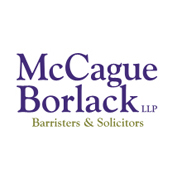By Adam Grant
This paper was first presented at a client subrogation seminar.
Introduction
Subrogated claims require a distinct approach from defense cases; not only is the onus on the plaintiff to move the case forward, but it is also in their direct financial interest to do so. The faster a case can move along, the faster it can be settled or otherwise resolved. However, pushing a matter relentlessly through the typical litigation steps can miss important opportunities to potentially resolve a claim. Because of this, managing subrogation matters involves a tempered balance of aggressive pursuit of recovery and cooperation with counsel to make it easier for the defendants to settle.
Early Action
It should be obvious that the earlier counsel knows the details of the case, the earlier they can get involved, and the more effectively they can lay the foundation of an effective claim and evaluate potential resolutions. Proactive involvement at the start of a case provides dividends throughout the claim.
Early in the claim, the focus should be on determining the facts and developing the claim, but also providing the defendant, as soon as possible, the information they need to consider a settlement offer. Thus, while the Statement of Claim is important to start litigation, the Affidavit of Documents and Damages Brief are important to start potential settlement discussions. Until the defendants receive these documents, they will not be in a position to consider, or make, any offer to settle.
...strong claims at the start can encourage other parties to settle early in litigation. |
The claim itself can be proactively developed by conducting expert examinations shortly after the loss. This makes it more likely that the expert will have access to the evidence necessary to analyze the cause of the loss but will also assist in identifying the parties which should be included in the claim. This ensures that the parties and the cause of loss are established early, and a case can be built around that information; neglecting to do so creates the potential that parties or causes are not identified, misidentified, or identified later in the litigation, which all requires duplicative work and creates otherwise avoidable delays in the litigation process. Furthermore, an early expert review provides an early analysis of the case, which can be used to evaluate the strength of your claim when offering settlements, and strong claims at the start can encourage other parties to settle early in litigation.
It is most effective to identify all potentially liable parties as early as possible. This includes those involved in the act, those potentially liable for failing to prevent the loss and those potentially liable for failing to mitigate the loss. By doing so, you can increase the likelihood that you will be able to obtain all relevant documents pertaining to the action, and therefore will not have to spend excess time searching for these documents later. This will provide the opportunity to examine all parties to gain information on the relative responsibility of each party which can factor into settlement offers. Furthermore, when you fail to make these claims, and the defendant decides to claim against these parties instead, the process could be lengthy and will usually delay the main action.
To this end, it is always helpful to engage a subrogation claims handler and/or counsel at as early a stage as possible to ensure that investigative steps are being taken as early as possible. If no one is involved to deal with subrogation until the completion of the first party claim, there is a risk that potential avenues of recovery can be lost.
Diarizing for your Case
Familiarity with a case breeds proactivity and success.
For lawyers, client guidelines often provide time limits, requiring reports to be produced every "x" number of days. However, creating a report should not be considered equivalent to hitting a snooze button, where you are free to ignore the case until the next report is due. By only considering files near the client-imposed deadlines, the details of any case may slip away or blend in with other similar fact patterns. This is especially true when you have many open cases or when the case is waiting on some action by another individual or another party.
Files should be touched on every couple of weeks, at minimum, and reports to the client should be continuously produced. By continuously reviewing the cases, you can ensure all deadlines have been met, all questions have been answered, and more effectively push for responses where there are delays. Maintaining this momentum in keeping this file moving forward creates opportunities to resolve the claim more rapidly than by passively waiting for these developments to occur.
Settlement
Settlement discussions are some of the most effective methods to proactively forward a claim... |
Settlement discussions are some of the most effective methods to proactively forward a claim because they hold the potential of an immediate resolution to the claim.
You should always be looking for opportunities to settle. Counsel and clients should always be thinking of the litigation procedure in a purposive, practical way, rather than considering the strict wording of the particular rules of court. If a defendant is asking for information or documentation, the question should not be "Are we required to provide this?"; instead, the question should be "Will this make it easier for the defendant to pay us?".
One effective point in litigation to consider settlement opportunities is before discovery. This provides the potential for an early resolution and benefits from two other aspects. First, the approaching discovery will necessarily entail costs; these costs may incentivize the party to settle, instead of incurring the additional legal fees. Second, after discovery, defendants may experience the "sunk costs fallacy," where they believe that because they have spent so much on a defense, it is not worthwhile to settle.
That being said, after the discovery process is complete, both sides can re-evaluate their claims based on the accumulated information. This should provide a clear view of the potential success of any claim and may encourage a party to accept settlement offers that are more reflective of the new evidence.
Throughout litigation, one must always be aware of different developments that may influence the attitude of the opposing party. Your strong expert report, or their weak one, may influence their desire to settle. Similarly, if they note they will be pursuing something, be it a report or an estimate, but do not provide that information, follow up and request it. However, rather than demanding its production, it may also be just as helpful to have a conversation with counsel about what the report or document is likely to say.
Conclusion
The more often that one can engage in candid, open dialogue with opposing counsel, adjuster, claims handlers, etc., the more likely it is that meaningful settlement discussions will occur. It is in the interest of the vast majority of counsel and litigants to resolve their dispute rather than leaving it in the hands of a judge or jury. As such, the earlier that parties can understand the complete position being taken by the opposing parties, the earlier they can fully assess the risks, and start to consider the merits of settlement.
From the perspective of plaintiff counsel, and the subrogating insurer, this requires sharing documents and information at an early stage. While the dogged pursuit of litigation keeps the matter on everyone's radar, you have to be prepared to slow down every so often if it can provide the prospect of meaningful settlement discussions. If you are solely focused on the road ahead, it is easy to miss attractive and available off-ramps; be prepared to pump the brakes from time to time so that you do not miss these opportunities.


